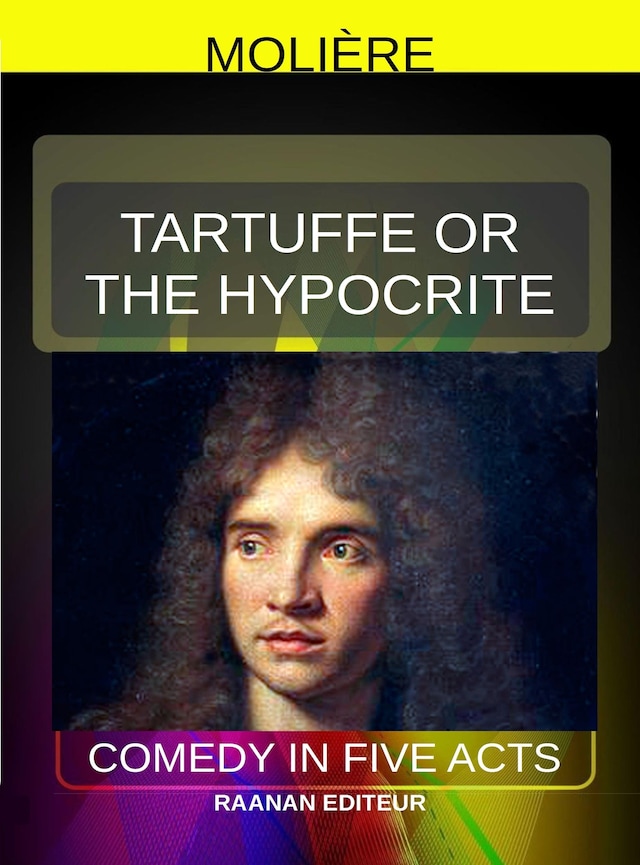
Tartuffe or the hypocrite
Description of the book
Tartuffe, or The Impostor, or The Hypocrite (French: Tartuffe, ou l'Imposteur), first performed in 1664, is one of the most famous theatrical comedies by Molière. The characters of Tartuffe, Elmire, and Orgon are considered among the greatest classical theatre roles.
History
As a result of Molière's play, contemporary French and English both use the word "Tartuffe" to designate a hypocrite who ostensibly and exaggeratedly feigns virtue, especially religious virtue. The play is written entirely in twelve-syllable lines (alexandrines) of rhyming couplets - 1,962 lines in all.
Plot
Orgon's family is up in arms because Orgon and his mother have fallen under the influence of Tartuffe, a pious fraud (and a vagrant prior to Orgon's help). Tartuffe pretends to be pious and to speak with divine authority, and Orgon and his mother no longer take any action without first consulting him.
Tartuffe's antics do not fool the rest of the family or their friends; they detest him. Orgon raises the stakes when he announces that he will marry Tartuffe to his daughter Mariane (already engaged to Valère). Mariane feels very upset at this news, and the rest of the family realizes how deeply Tartuffe has embedded himself into the family.
In an effort to show Orgon how awful Tartuffe really is, the family devises a scheme to trap Tartuffe into confessing to Elmire (Orgon's wife) his desire for her. As a pious man and a guest, he should have no such feelings for the lady of the house, and the family hopes that after such a confession, Orgon will throw Tartuffe out of the house. Indeed, Tartuffe does try to seduce Elmire, but their interview is interrupted when Orgon's son Damis, who has been eavesdropping, is no longer able to control his boiling indignation and jumps out of his hiding place to denounce Tartuffe.
|Source Wikipédia|


